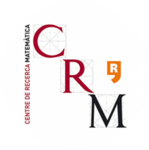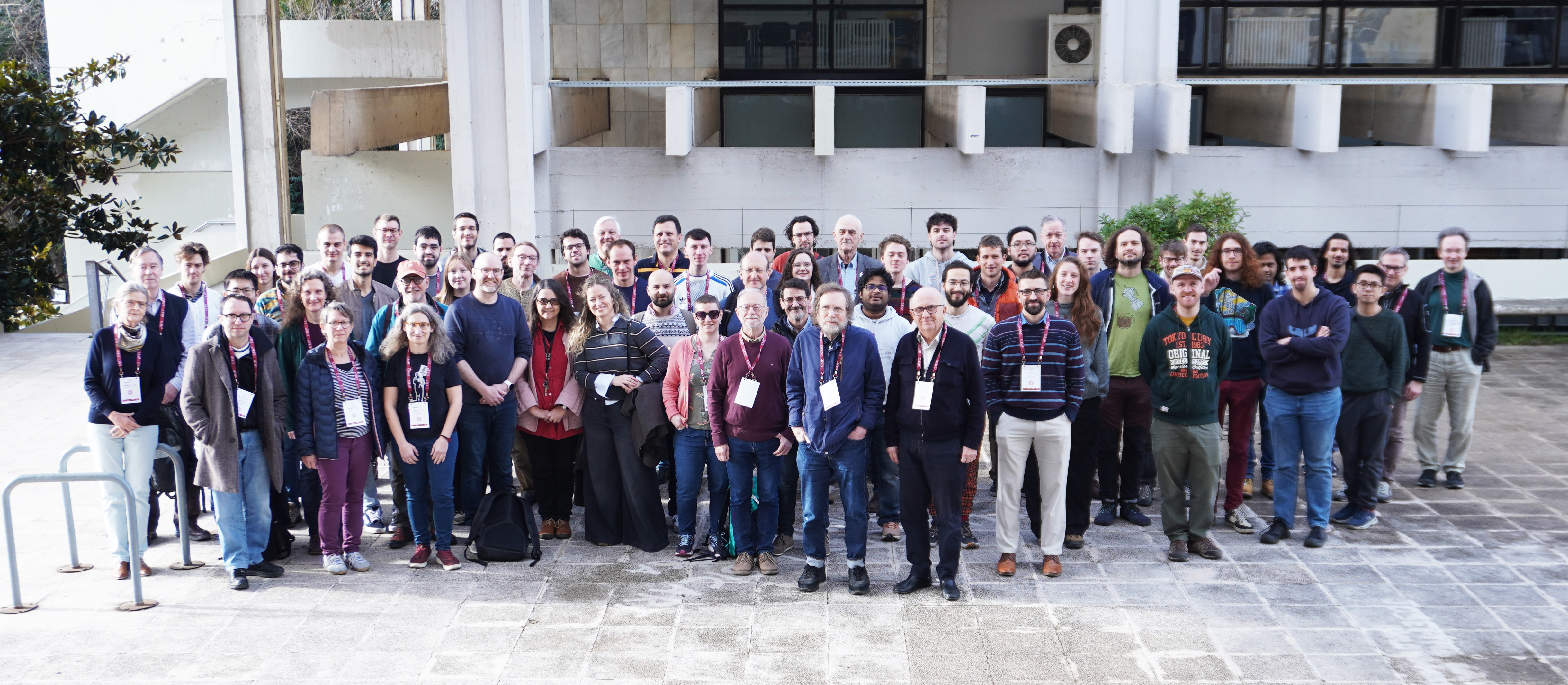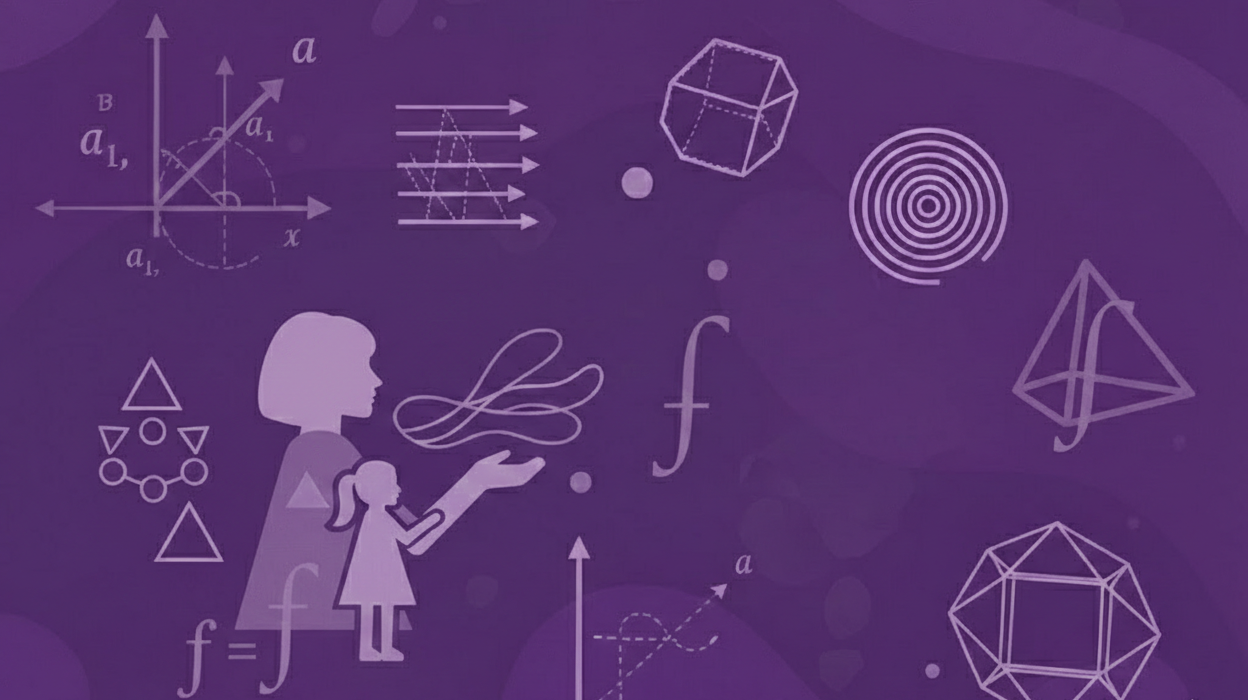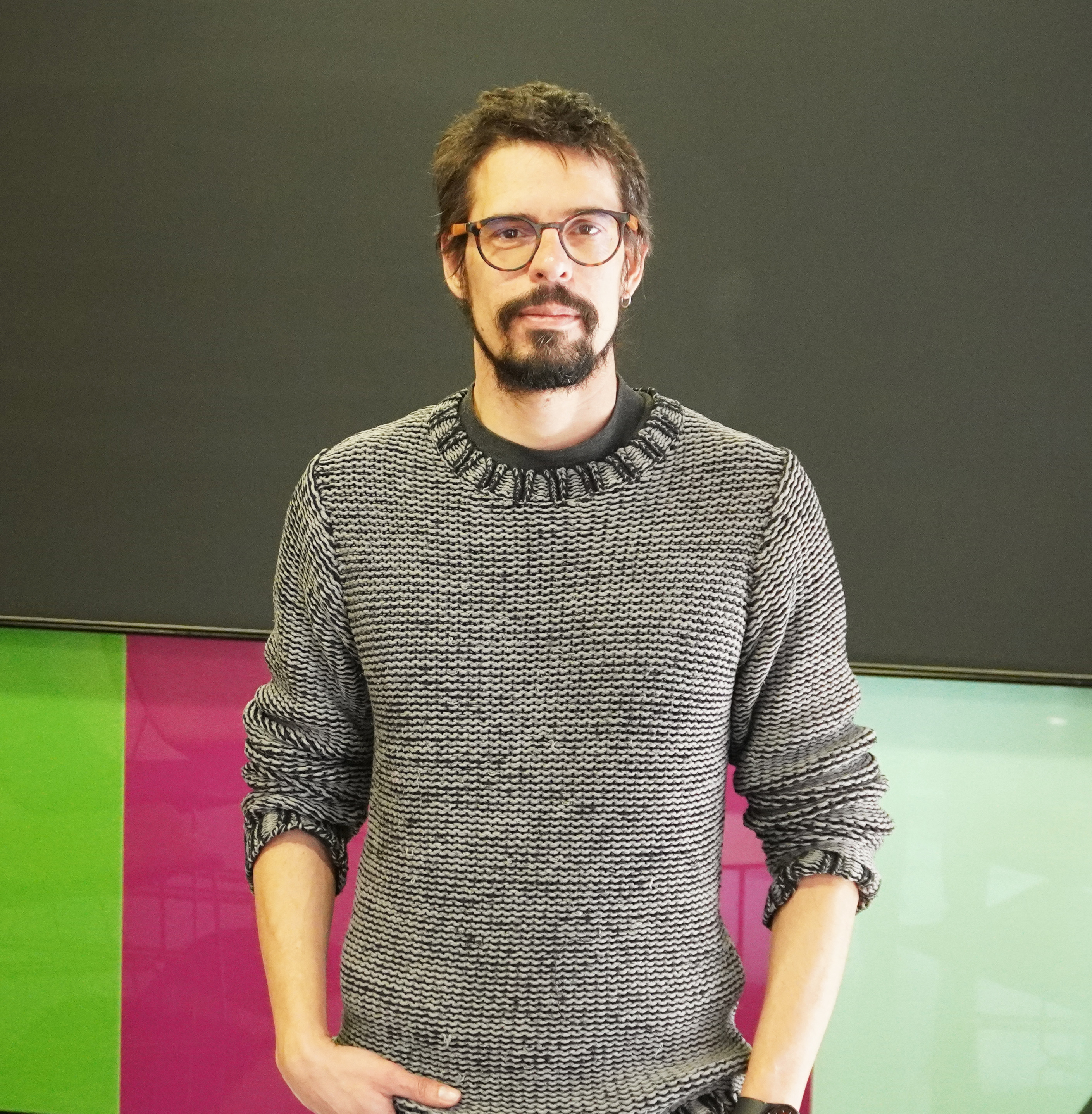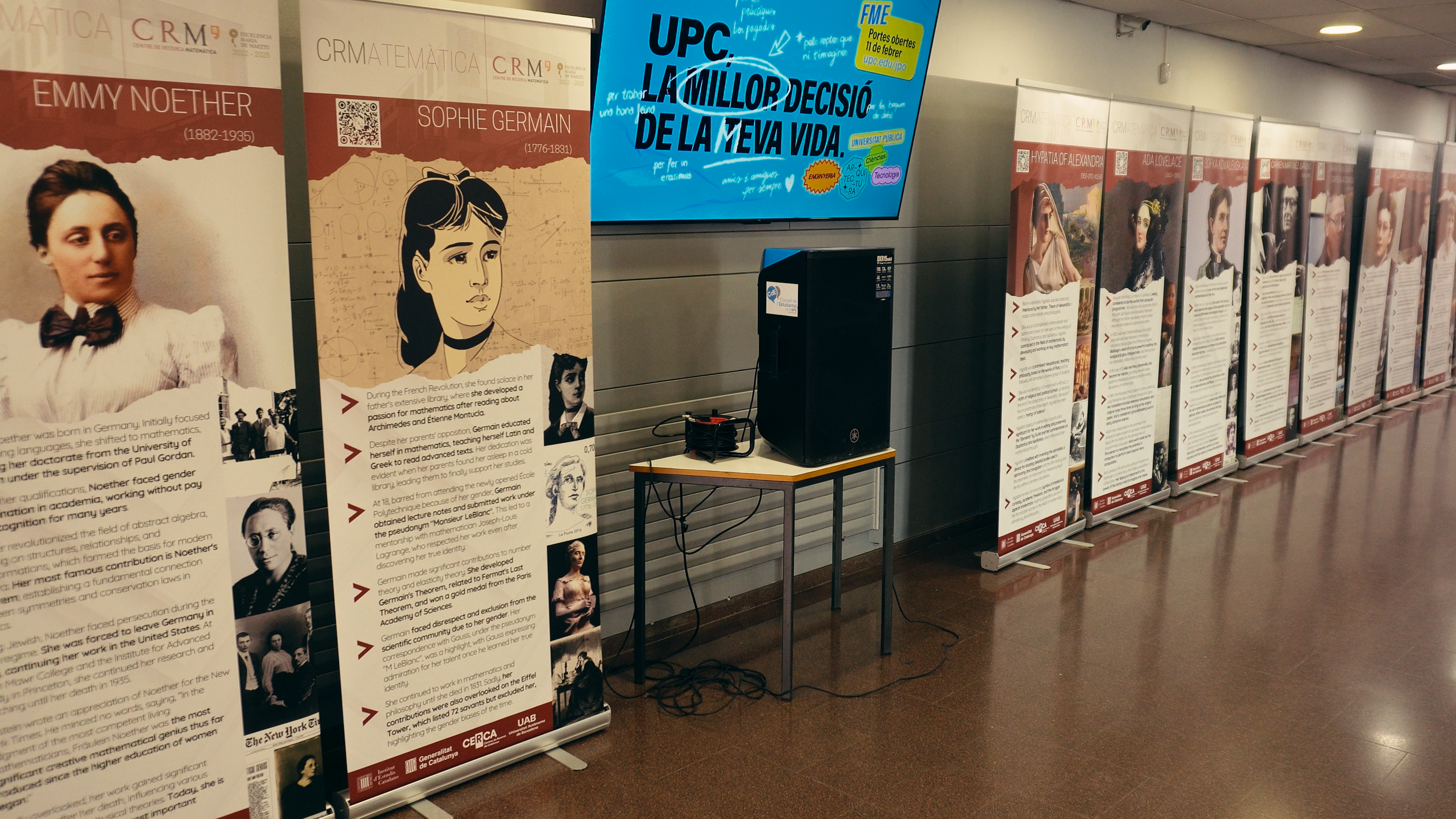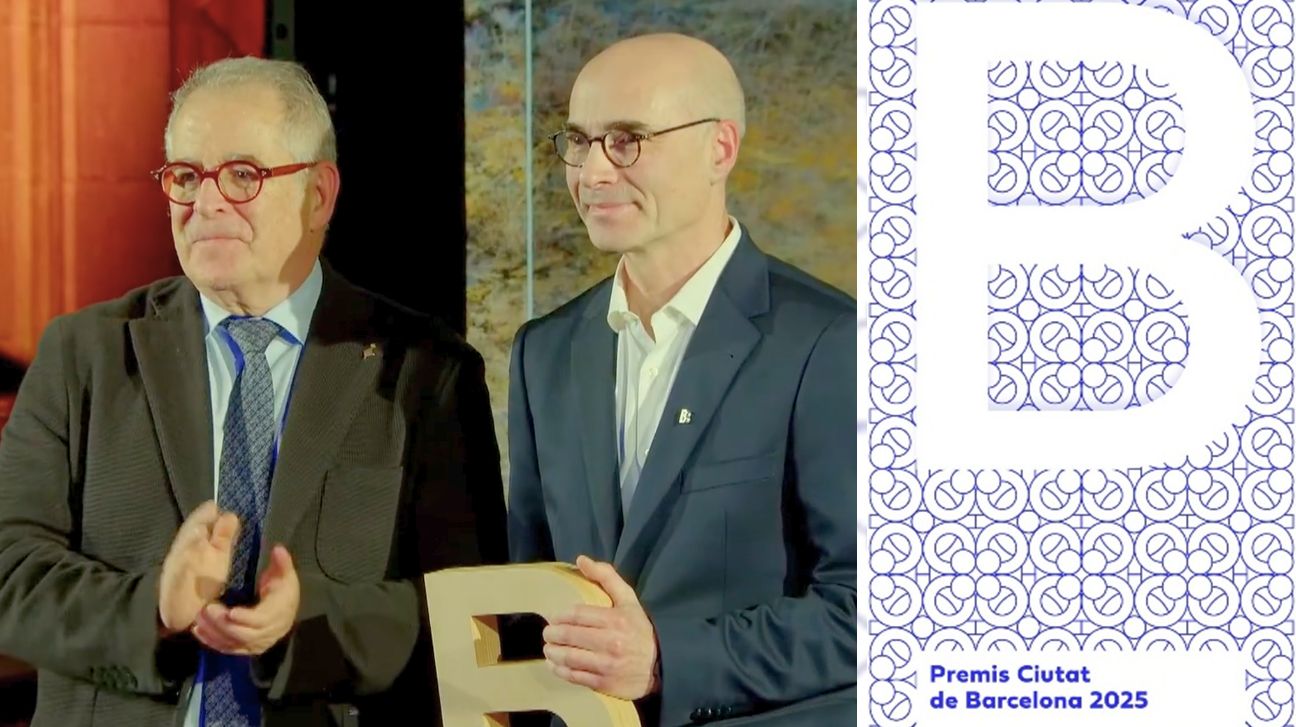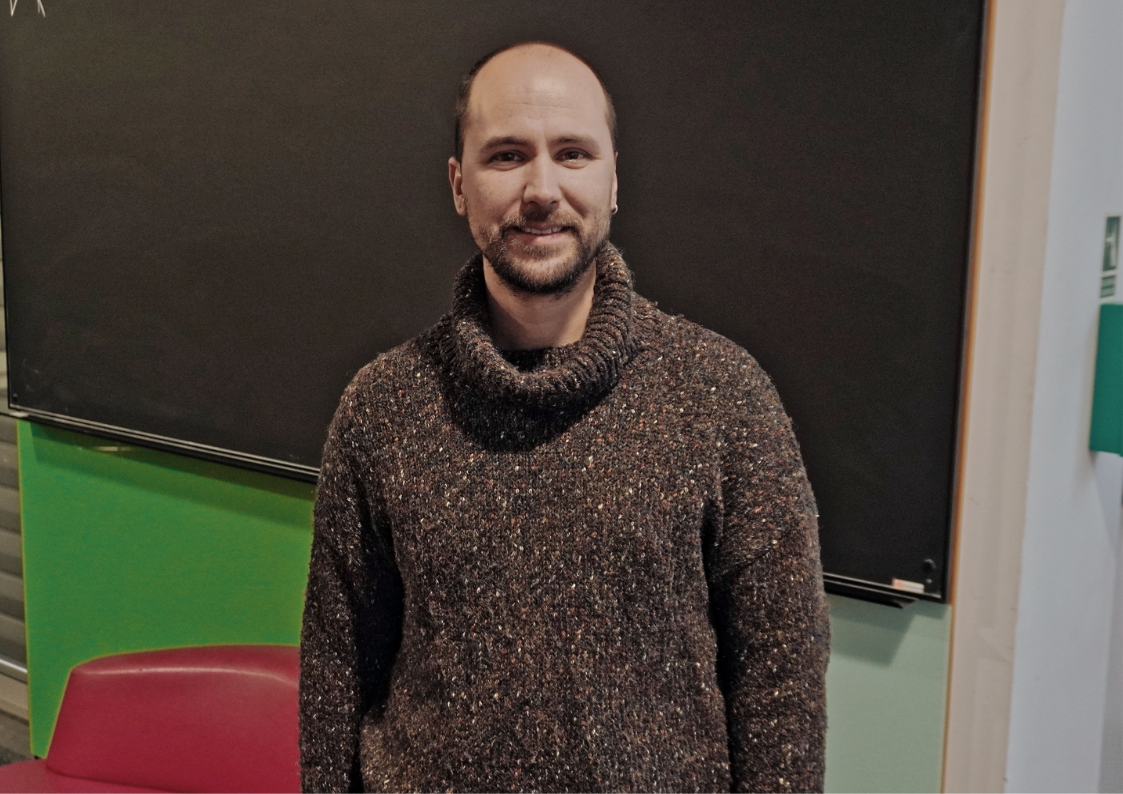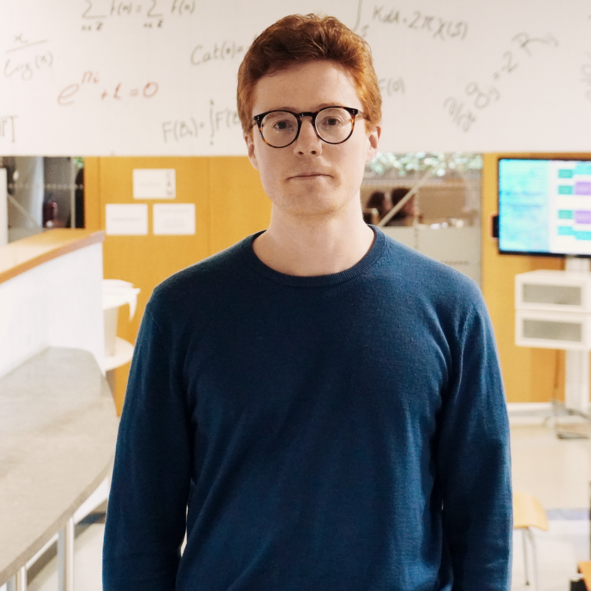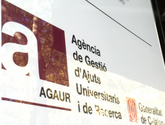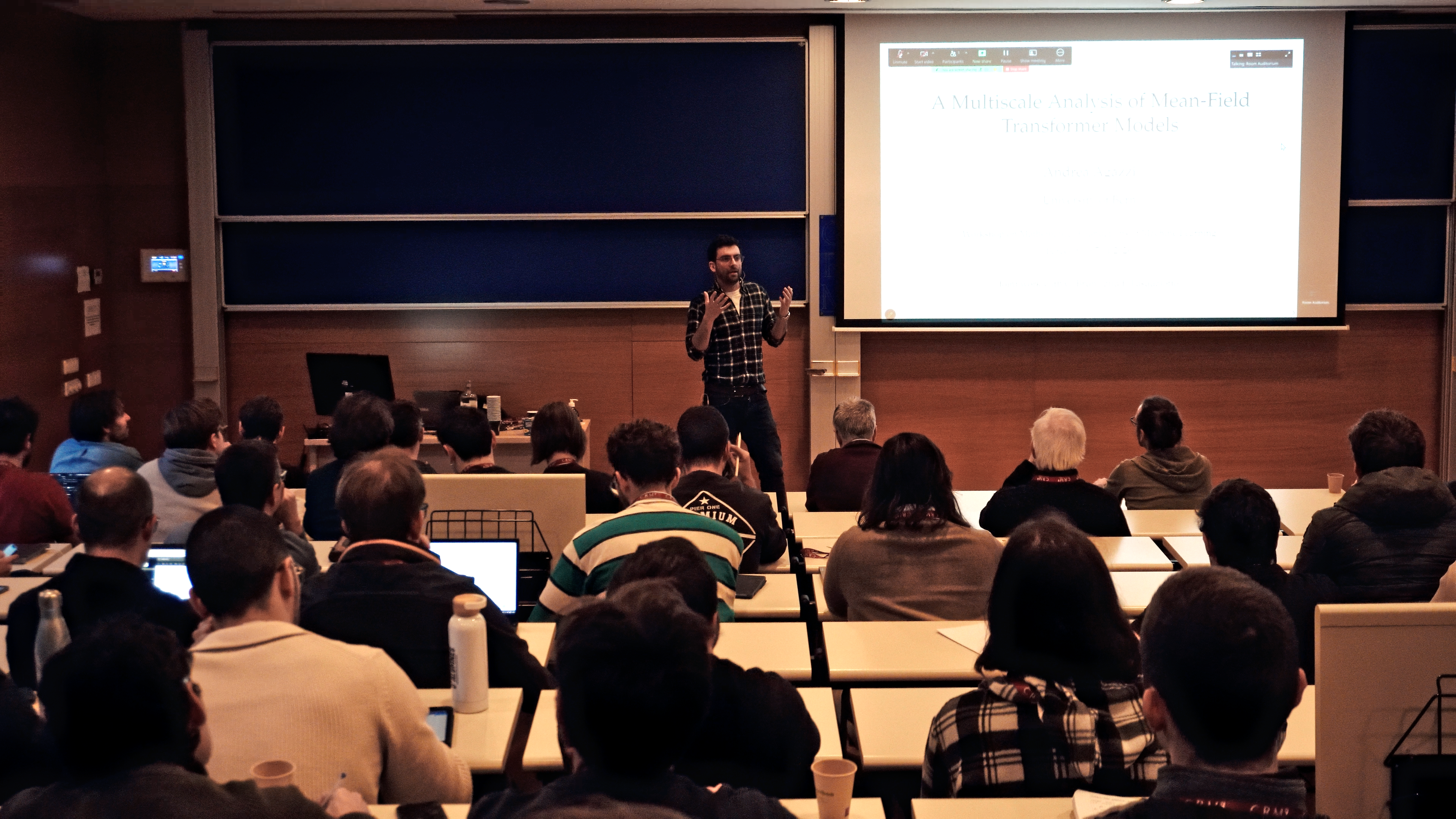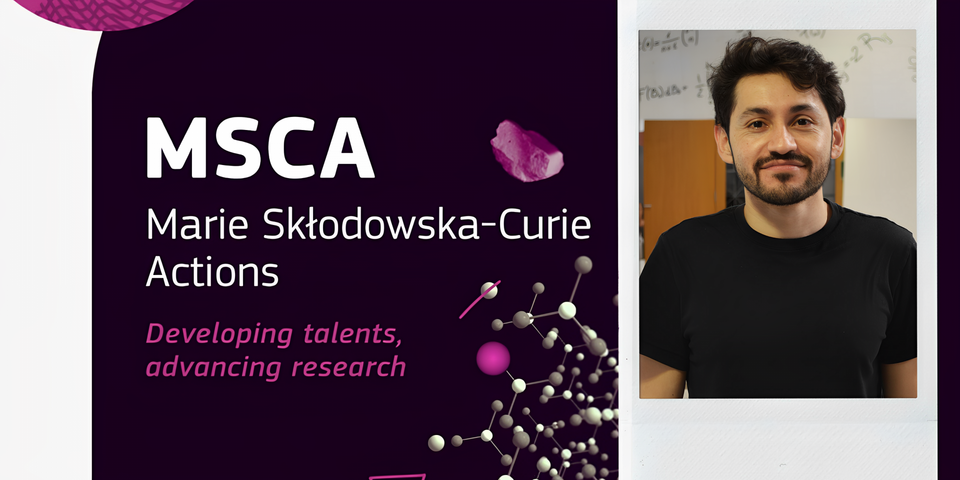
• The European Commission has announced the results of the 2023 Marie Sklodowska Curie Postdoctoral Fellowships (MSCA), selecting 1,249 postdoctoral researchers to join R&D institutions across Europe.
• Among the funded proposals is that of Frank Trujillo, who will carry out the REXHALODYN project at the CRM, focusing on the dynamics of Hamiltonian systems and interval exchange transformations.
The results of the 2023 Marie Sklodowska Curie Postdoctoral Fellowship (MSCA) call were announced by the European Commission last February. The call will facilitate the incorporation of 1,249 postdoctoral researchers to R+D institutions (research centres, universities, private and public organizations, and small and medium-sized enterprises) throughout Europe, chosen from among 8,039 applicants. Among them is Frank Trujillo, who in May will start the project Regular and Exotic behavior in Hamiltonian and low-dimensional dynamical systems (REXHALODYN), within the CRM dynamic systems group to work with Marcel Guardia.
REXHALODYN is a project dedicated to exploring both regular and exotic properties of Hamiltonian systems, circle transformations, and generalized interval exchange transformations (GIETs). These mathematical tools are fundamental to understanding the phenomena of classical mechanics and dynamical systems, providing simplified models that reflect the essential features of more complex systems.
The MSCA Postdoctoral Fellowship call funds the recruitment of research staff of any nationality who have a maximum of 8 years of research experience and who wish to acquire new skills through advanced training and international, interdisciplinary and intersectoral mobility.
Exploring the Boundary Between Regularity and Exoticism in Dynamical Systems
Frank Trujillo obtained his PhD in Mathematics at the Institut de Mathématiques de Jussieu – Paris Rive Gauche (IMJ-PRG) under the joint supervision of Hakan Eliasson and Bassam Fayad. His research focuses on dynamical systems, particularly Hamiltonian dynamics, KAM theory, circle transformations, and interval exchange transformations. Prior to joining the CRM, he was a postdoctoral researcher at the University of Zurich.
On the occasion of being awarded the Marie Sklodowska Curie Fellowship, we had the opportunity to talk to Frank about his path in the world of mathematical research and the goals of the project he will develop.
Did you already like math as a child?
It may sound strange, but I always knew I wanted to do math. My sister, who is ten years older than me, is a math teacher at a school, and my brother is a physicist. I think my sister was mostly the one who helped me, teaching me to understand things better. When you’re in school you think mathematics is one way, but then when you get to college that’s when you see that it’s not the same. Luckily, I liked that change and it motivated me.
And how did you become interested in dynamical systems in particular?
It was an accident, to be honest. I did my bachelor’s degree in Colombia, and then I went to Brazil for my master’s degree. I was at the Institute of Pure and Applied Mathematics (IMPA) in Rio, where they work a lot on dynamical systems, although I was doing things more related to analysis. It was precisely during the master’s that I realized that analysis was not what interested me. But it was precisely when I was in that institute that I started to take courses and explore a little more the field of dynamical systems. So for my PhD I tried to find people who worked in dynamic systems and I contacted researchers in France, who recommended a scholarship program. In the end, there is always a luck factor in life decisions, and in this case, I was lucky because I am happy with my field of research.
Within the field of dynamical systems, you work with theoretical aspects and not so much with applied ones.
For me, that was also a discovery. It was during my master’s degree that I realized that mathematics, in a way, is like an art. What I do is very theoretical, it doesn’t have a direct application. What’s more, even if it did, the people who work in my field do it largely because they find it interesting. No one I know does it thinking that maybe it has an app. For me, this is a challenge and a very big motivation.
Recently, you have obtained a Maria Skłodowska-Curie Postdoctoral Fellowship (MSCA). What does this opportunity mean for your research?
I think it’s a step forward to be able to grow as a researcher. On the one hand, it is something prestigious for my curriculum, but it is also the first time that I will have my own funds to be able to develop my research, invite collaborators, and make scientific visits… It’s like a vote of confidence they give me. It is a privilege and I see it as a first step to be able to consolidate myself as a researcher in the future. The research career is very competitive.
What is the focus of the project?
The project consists of two parts; one deals with Hamiltonian dynamics1. The classic example is the study of the solar system and other similar physical systems. The systems I investigate are more theoretical, so I will study problems about stability and the existence of certain periodic motions such as when planets move in ellipses. Although they are not exactly periodic ellipses, they are something similar, what I call quasi-periodic motions. Then you can ask why they exist, what their properties are, and whether they are stable, which ties in with the classic question about whether the solar system is stable.
The second part of the project takes a more abstract approach, focusing on single-dimensional transformations, particularly what is called interval exchange transformations.2. If you take an interval, cut it into segments, and change its order, this gives you a transformation that is continuous in pieces. In dynamic systems, the question we ask ourselves is what happens when you have a function and want to iterate. If I ask you what happens to the orbit of each point in the system, you’ll see that it’s a difficult question to answer. The goal is to try to describe this, using the simplest transformations to describe the most generalized ones. The theory behind this is based on my work during my first postdoc in Switzerland.
An important aspect of the project is how the orbits of individual points within these transformations are distributed over time. Although each point can be moved in a way that covers all the available space, we are particularly interested in seeing how some points tend to cluster more in certain areas than others. To delve deeper into this phenomenon, something known as invariant measures is being studied3. These transformations have a single invariant measure. We know that orbits accumulate in small clusters, but the interesting thing is to know how small these clusters are and what else we can discover about them.
Having been to several countries throughout your academic career, have you noticed any difference in the methodology or research focus of each place?
I think the themes tend to accumulate depending on the predominant school. For example, in Brazil it is very common to study things that are related to hyperbolic or partially hyperbolic behavior. Here in Barcelona, people are working more on celestial mechanics and Hamiltonian dynamics. It depends a lot on the people who have founded the school in each place. The methodology also changes quite a bit. In Brazil, they have a more relaxed and intuitive way of working; On the other hand, in France everything is more rigorous, looking at all the details. My thesis supervisors were a Swedish professor and a Lebanese professor, so the way the two of them worked was very different. I think the cultural aspect also plays a role.
Here in Spain, what impression did you get?
Here I think it’s much easier to debate and talk about math, even on a more informal level. There’s a sincere curiosity to know what you’re working on. There is a warmer environment that also influences the way you work.
When you encounter a challenge in your work or a problem that you can’t find a solution to, how do you deal with it?
You have to have a certain degree of resilience because it happens to all of us, being blocked or frustrated at some point. It was important for me to understand that these moments are part of the process. Not everything always goes as we would like, but that doesn’t mean that the work isn’t well done. It is important to know that this happens and is normal. And also to know that you have other projects that you can keep moving forward with and maybe later go back to the original problem and be able to see it with new eyes. It’s important to diversify and also interact more with other people to enrich your perspective.
Do you want to share something about yourself or some piece of advice?
You have to look for something that makes you happy. If you look at math as a job, you’ll realize that it’s a good job. You have flexible schedules, you can travel to participate in conferences… Of course, there’s pressure, but it’s the pressure you put on yourself. Some people love mathematics and you see that it is their passion and they dedicate all their time to it, but some people see it as a job and then have their life outside. To me, it’s an interesting thing because if you like math, it’s a field where you can be happy in very different ways.
Finally, what does mathematics mean to you?
To me, mathematics is the embodiment of logic. It’s a place where you’re clear about your hypotheses and can see if they’re true or not. I love this logical pulse.
__________________________________________________________________________
- Hamiltonian dynamics is a fundamental framework in classical mechanics that describes the evolution over time of physical systems. It is characterized by the use of Hamilton’s equations, a set of first-order differential equations that relate the generalized coordinates of the system (such as position) and its conjugate momenta (related to momentum or amount of motion).
- Interval exchange transformations are a class of dynamical systems that generalize rotations in the circle. Imagine you have an interval on the actual line, divided into sub-intervals of different lengths. An interval swap transformation takes these subintervals and reorders them according to a predetermined rule, maintaining their original orientation. This process creates a new arrangement of the subintervals in the original interval.
- An invariant measure in the context of dynamical systems is a property that intuitively describes how the points of a space are distributed over time under the action of a transformation or flow, in such a way that this distribution remains constant over time.
Subscribe for more CRM News
|
|
CRM CommPau Varela & Mariona Fucho
|
When Symmetry Breaks the Rules: From Askey–Wilson Polynomials to Functions
Researchers Tom Koornwinder (U. Amsterdam) and Marta Mazzocco (ICREA-UPC-CRM) published a paper in Indagationes Mathematicae exploring DAHA symmetries. Their work shows that these symmetries shift Askey–Wilson polynomials into a continuous functional setting,and...
Homotopy Theory Conference Brings Together Diverse Research Perspectives
The Centre de Recerca Matemàtica hosted 75 mathematicians from over 20 countries for the Homotopy Structures in Barcelona conference, held February 9-13, 2026. Fourteen invited speakers presented research spanning rational equivariant cohomology theories, isovariant...
Three ICM speakers headline the first CRM Faculty Colloquium
On 19 February 2026, the Centre de Recerca Matemàtica inaugurated its first CRM Faculty Colloquium, a new quarterly event designed to bring together the mathematical community around the research carried out by scientists affiliated with the Centre. The CRM auditorium...
Trivial matemàtiques 11F-2026
Rescuing Data from the Pandemic: A Method to Correct Healthcare Shocks
When COVID-19 lockdowns disrupted healthcare in 2020, insurance companies discarded their data; claims had dropped 15%, and patterns made no sense. A new paper in Insurance: Mathematics and Economics shows how to rescue that information by...
L’exposició “Figures Visibles” s’inaugura a la FME-UPC
L'exposició "Figures Visibles", produïda pel CRM, s'ha inaugurat avui al vestíbul de la Facultat de Matemàtiques i Estadística (FME) de la UPC coincidint amb el Dia Internacional de la Nena i la Dona en la Ciència. La mostra recull la trajectòria...
Xavier Tolsa rep el Premi Ciutat de Barcelona per un resultat clau en matemàtica fonamental
L’investigador Xavier Tolsa (ICREA–UAB–CRM) ha estat guardonat amb el Premi Ciutat de Barcelona 2025 en la categoria de Ciències Fonamentals i Matemàtiques, un reconeixement que atorga l’Ajuntament de Barcelona i que enguany arriba a la seva 76a edició. L’acte de...
Axel Masó Returns to CRM as a Postdoctoral Researcher
Axel Masó returns to CRM as a postdoctoral researcher after a two-year stint at the Knowledge Transfer Unit. He joins the Mathematical Biology research group and KTU to work on the Neuromunt project, an interdisciplinary initiative that studies...
The 4th Barcelona Weekend on Operator Algebras: Open Problems, New Results, and Community
The 4th Barcelona Weekend on Operator Algebras, held at the CRM on January 30–31, 2026, brought together experts to discuss recent advances and open problems in the field.The event strengthened the exchange of ideas within the community and reinforced the CRM’s role...
From Phase Separation to Chromosome Architecture: Ander Movilla Joins CRM as Beatriu de Pinós Fellow
Ander Movilla has joined CRM as a Beatriu de Pinós postdoctoral fellow. Working with Tomás Alarcón, Movilla will develop mathematical models that capture not just the static architecture of DNA but its dynamic behaviour; how chromosome contacts shift as chemical marks...
Criteris de priorització de les sol·licituds dels ajuts Joan Oró per a la contractació de personal investigador predoctoral en formació (FI) 2026
A continuació podeu consultar la publicació dels criteris de priorització de les sol·licituds dels ajuts Joan Oró per a la contractació de personal investigador predoctoral en formació (FI 2026), dirigits a les universitats públiques i privades del...
Mathematics and Machine Learning: Barcelona Workshop Brings Disciplines Together
Over 100 researchers gathered at the Centre de Recerca Matemàtica to explore the mathematical foundations needed to understand modern artificial intelligence. The three-day workshop brought together mathematicians working on PDEs, probability, dynamical systems, and...

